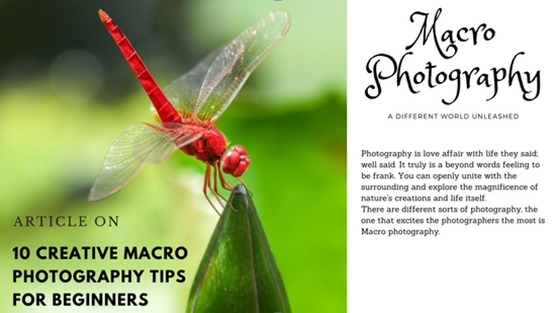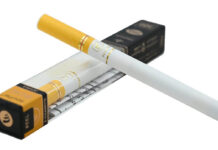Photography is a love affair with the life they said; well said. It truly is beyond words feeling, to be frank. You can openly unite with the surroundings and explore the magnificence of nature’s creations and life itself.
Guidelines for beginners
There are different sorts of photography, the one that excites photographers the most is Macro photography. In this type of photography you can focus on the tiniest creations of nature and see the sights of their exquisite beauty. All you need for this type of photography is a unique way to see the objects. Creativity is essential. To be honest, micro photographer also need retouch company to make a professional image.

So, in this article I’ll give you some creative guidelines on improving your creativity and camera settings as a beginner for Macro photography.
Just grab a cup of coffee! And Browse the page.
8 Creative Macro Photography
Here are some tips and tricks to take your microphotography to a whole new level.
1.Choosing the Lens
There are different types of lenses available in the market. Which one to choose? For macro photography, a lens that has a good magnification length is important. You can also use extension tubes (it provides the actual lens with some additional magnification) or for better magnification you can also use reverse a normal lens connected with extension tubes. An object will get magnified by 2.3X using both of them attached together. Suppose the insect you are taking pictures of is 10mm in size, it will look 23mm in the camera screen if you use to reverse a normal lens with extension tubes connected with your camera lens.
Coming back to the topic about which lens to choose? Well the best macro lens you can use is the lens with a focal length of 90-150 mm. This will give enough magnification so that you won’t have to get close to the insect, to scare it away. There are other lenses too for example the lens with a focal length of 50 mm or 60mm. They also perform well but the only problem is that, you might have to get close to the object and may scare it away before you can click its photo.
2. Best site and weather conditions
Unlike other photography, macro photography doesn’t have any specific time for taking photos. You won’t have to wake up early at 4 am for a golden hour neither do you have to wait for different weather conditions. Any time is best for such photography. Insects keep roaming around the whole day and even night. So, it’s easy to find them anywhere.
Still, the place for finding insects is somewhere in botanical gardens or parks with lots of trees and flowers. Most of the insects visit these places in search of food. The best time would be the summertime or any warm day, the insects are active in this weather. So, you can take great pictures of insects in action.
3. Flash
If your macro photography subject is small, suppose an insect. Then you must use the Close-up mode on the camera. By turning it on, you will have to move closer towards the object and if there’s less light using flash will be compulsory. While using flash the aperture should be lower like F16, it will brighten up the image.
Any type of flash can be used for macro photography; even the built-in flash also performs well. There are some situations when you don’t need the flash, especially when there is enough amount of sunlight. The aperture can also be reduced; in this case F2.8 or F4 will also be good. But, for taking close images with less light flash must be used. It is the rule for macro photography settings.
4. Using Diffuser
Overexposure of flash can sometimes harm the photo. Its hardness increases the sharpness of the subject and sometimes brightens up the subject too much. To control this overexposure the use of diffusers is needed. What is a diffuser? It is a type of softener; it softens the light coming from the flash.
Read Also: Why Spy App is Important to Keep an Eye on Employees
While clicking the photos of smaller objects by using flash, a diffuser is very helpful. It will add highlights to the subject and make the subject look more attractive.
5.Controlling the Shutter speed
While using less aperture and flash the only thing that will be needed is to increase the shutter speed. A fast shutter speed will help you to freeze the object. However by using a fast shutter speed, the image background will become black. So, using a flash will be necessary and the flash will let you reduce the shutter speed without ruining the picture quality plus the background will also be bright.
6. Focusing the subject
In this type of photography, the major element of appeal is the focus on the subject. The people who are going to watch your photos will notice the focus firstly. For macro photography of insects, the focusing point should be their eyes or the back part. This will increase the attractiveness of the picture more.
7. Perspective
The quality of the image depends on the angle of the subject. A unique perspective causes the picture to look more pleasant. The viewpoint should be different, it is not necessary to always focus the eyes, sometimes focusing the insect from different angles while its moving or doing any work will also increase the quality of the photograph.
8. Enlargement
While taking such photos magnifying the subject is a normal thing, but have you ever tried not to magnify the subject rather taking it with the surrounding it is in?
In order to gain more view of your photos tries taking the background of the subject too. Focus on the subject only. In this way the Image will look eye-catching.
These are the ways in which macro photography can be easily done. It will enlighten your perception and will also help you to connect yourself with the unique creations of nature.
So, just grab a camera, find a place choose a time, focus the subject and CLICK!









